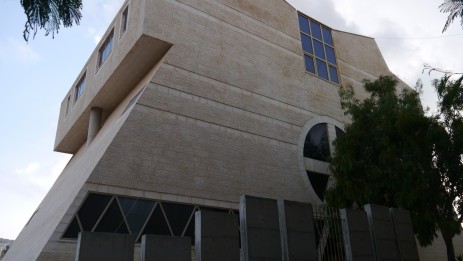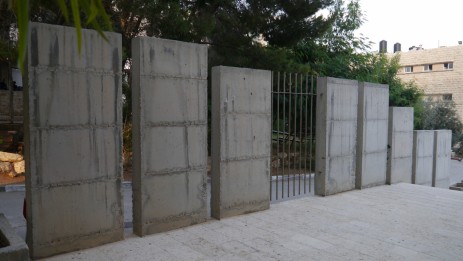Imprisonment without trial is commonplace here and almost everyone I have spoken to has been affected by it in some way. On Monday, a woman I give English conversation classes to, told me that her son’s prison detention has been extended. He was arrested 3 months ago, without charge or trial, and was due to be released on Wednesday. She will now have to wait another 3 months before he comes home. The most worrying thing for her is that her son has a severe skin condition and is on prescription medication. In prison he is denied this medicine and is in increasing pain. This is also not the first time he has been in prison. In 2010, when he was 17, he was behind bars for 24 months. She is clearly a strong women, but reveals to us that she feels desperately worried that when she smiles, people forget the pain she is carrying. Another lady, Nisreen, then added that her friend’s 16 year old son was taken away at 3am a few days ago. Nisreen has a 20 year old son of her own and said that, every night, she lies awake until the early hours of the morning, worrying that the army might break in and take him away.
We had a discussion at the university that afternoon about administrative detention. A lecturer of Law informed us that in the last academic year, 60 students have been arrested. He reported that 3 of these were via ‘flying check-points’ at the university entrance – check points that are enforced at anytime, anywhere. He also said that 2000 tear gas canisters were used in attacks on the university in 1 year. A student in the group shared that her brother was arrested from her home 4 years ago, without charge or trial, and died from neglect whilst in solitary confinement. The court case in ongoing.
Since Monday, 4 men in Abu Dis have been arrested for ‘administrative detention’, from their beds in the early hours of the morning. One of these men is the Deputy Mayor of Abu Dis who was arrested on the morning that he was due to become Mayor. The details of these arrests are kept in the Israeli government’s ‘secret file’. Neither detainees nor lawyers can see this file, leaving them uninformed and helpless. Records now show that 40% of all Palestinian men have been imprisoned since 1967. This figure is only of those who remain there for over 1 month, anything less goes unrecorded.
Many people here join prisoners in solidarity by going on hunger strike with them. I have just made it through a 3 day strike to show solidarity, raise awareness and also to raise money for the Camden Abu Dis Friendship Association. I had nothing but water for over 72 hours. It was a struggle, but this short strike has given me great insight into the determination and desperation of many who have sustained it for weeks and months on end.
The Prisoners Museum on the Al-Quds University campus


No comments:
Post a Comment